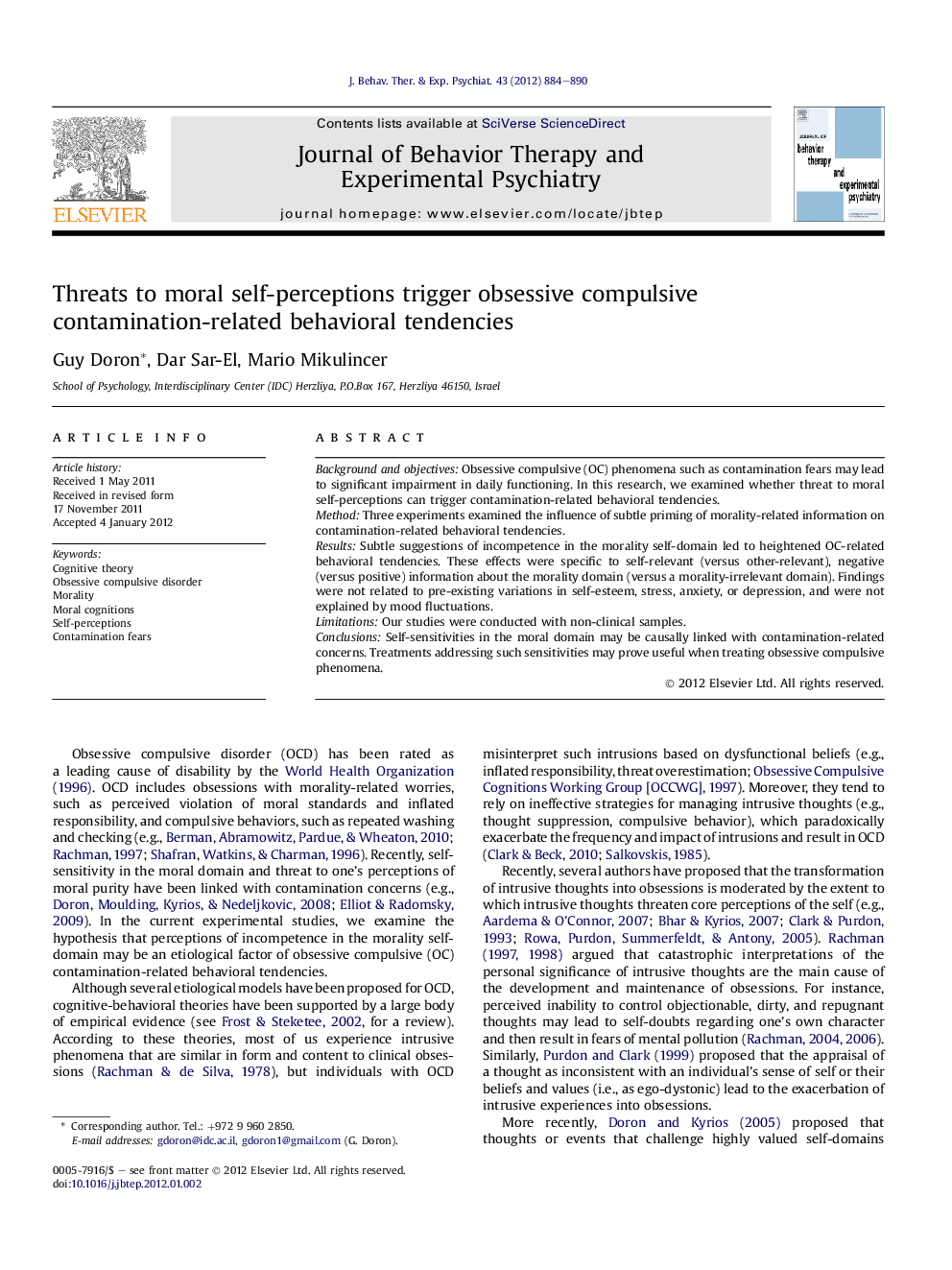| Article ID | Journal | Published Year | Pages | File Type |
|---|---|---|---|---|
| 910392 | Journal of Behavior Therapy and Experimental Psychiatry | 2012 | 7 Pages |
Background and objectivesObsessive compulsive (OC) phenomena such as contamination fears may lead to significant impairment in daily functioning. In this research, we examined whether threat to moral self-perceptions can trigger contamination-related behavioral tendencies.MethodThree experiments examined the influence of subtle priming of morality-related information on contamination-related behavioral tendencies.ResultsSubtle suggestions of incompetence in the morality self-domain led to heightened OC-related behavioral tendencies. These effects were specific to self-relevant (versus other-relevant), negative (versus positive) information about the morality domain (versus a morality-irrelevant domain). Findings were not related to pre-existing variations in self-esteem, stress, anxiety, or depression, and were not explained by mood fluctuations.LimitationsOur studies were conducted with non-clinical samples.ConclusionsSelf-sensitivities in the moral domain may be causally linked with contamination-related concerns. Treatments addressing such sensitivities may prove useful when treating obsessive compulsive phenomena.
► Self-sensitivities may be causally linked with obsessive compulsive (OC) phenomena. ► Threat to the moral self-domain heightened contamination behavioral tendencies. ► Effects were specific to self-relevant, negative information about morality. ► Effects were not related to pre-existing variations in self-esteem and mood. ► Addressing such sensitivities in treatments of OC phenomena may prove useful.
